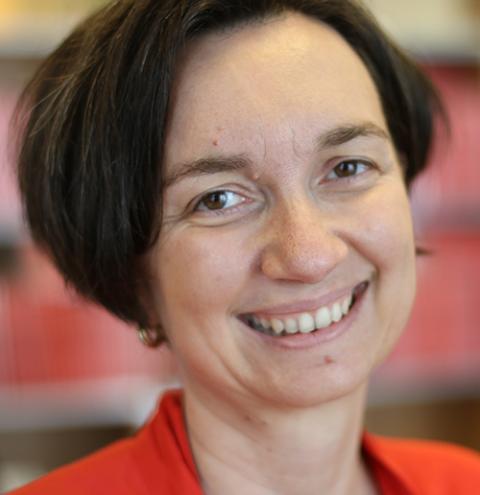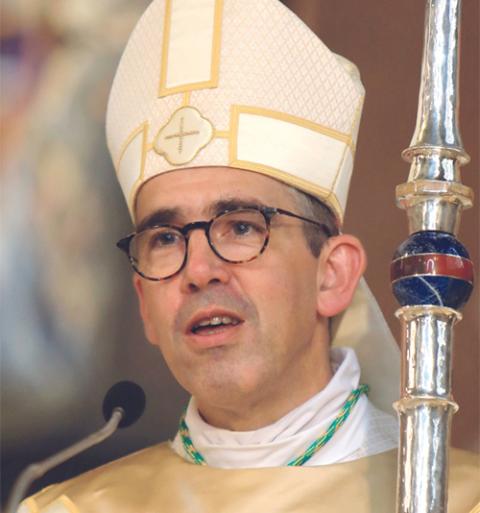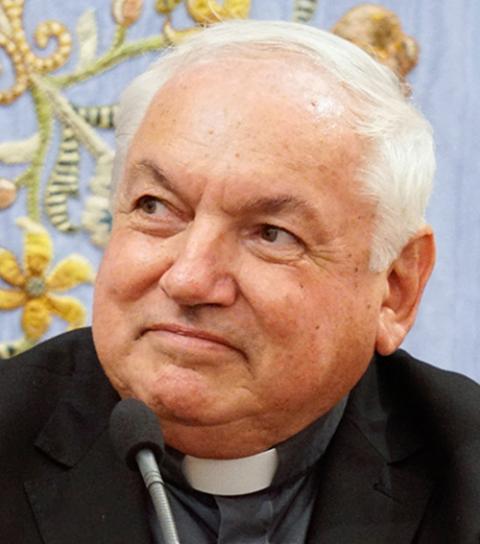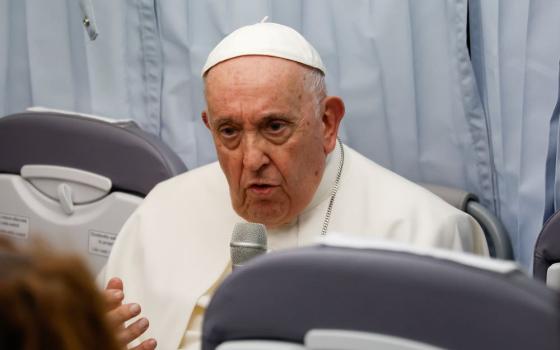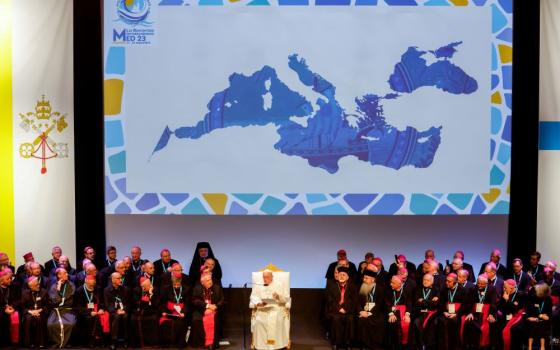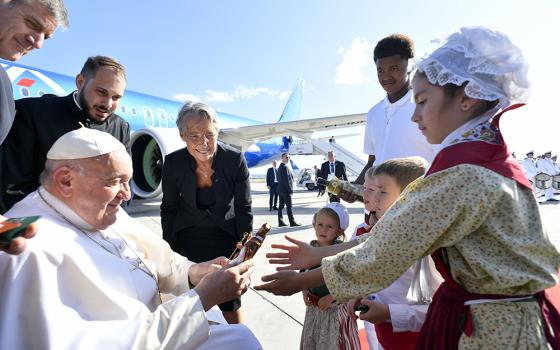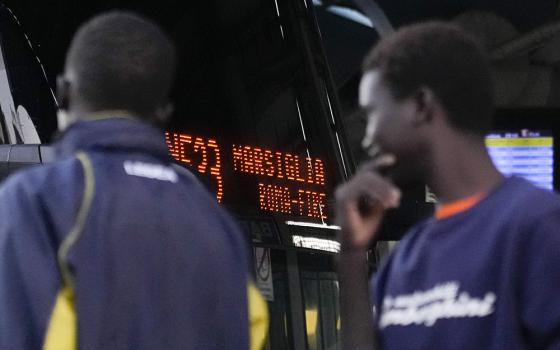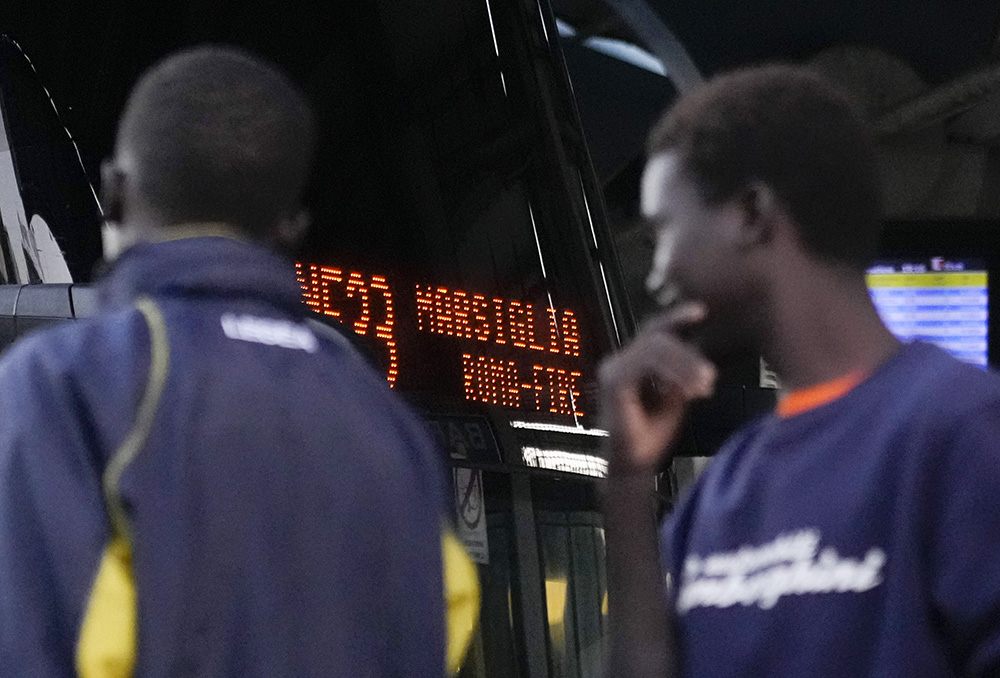
Migrants wait to board a bus headed to Marseille, France, on Sept. 12 in Rome. An appeal to welcome and integrate migrants is expected to be at the top of Pope Francis' agenda as he travels to the French port city Sept. 22-23. (AP/Gregorio Borgia)
In 2013, Pope Francis made his first trip outside of Rome to the tiny Italian island of Lampedusa to spotlight what he termed the "globalized indifference" toward migrants. Ten years later, as he travels to Marseille, France, this weekend — for what will be his 44th visit abroad — Lampedusa will still likely be on the forefront of his mind.
Earlier this month, some 8,500 migrants from North Africa arrived on the shores of Lampedusa — more than the entire population of the island — over the course of just three days. In response, Italian Prime Minister Giorgia Meloni called for a "paradigm change" in how Europe addresses migration. And neighboring France said that it would not welcome any of the new arrivals.
Part of the problem, according to far-right politicians: Pope Francis.
Francis, who is regarded as a global champion of migrants, will make a brief overnight visit to the French port city of Marseille Sept. 22-23 to participate in a meeting of young people and Catholic bishops from more than 30 countries in the Mediterranean region.
Advertisement
An appeal to welcome and integrate new arrivals is expected to be at the top of the pope's agenda — and against the backdrop of recent events, both the message and the messenger are already igniting fierce debate.
Marion Maréchal, a French politician who is the granddaughter of the anti-immigrant National Front founder Jean-Marie Le Pen and niece of its current leader Marine Le Pen, has already issued a blunt warning: The pope has "no business in politics," and being from South America means he "doesn't fully understand what we're facing."
According to Céline Béraud, director of studies at the Center for Studies in Social Sciences of Religion, "Immigration is a very sensitive issue in France."
"Francis' pro-migrant message risks dividing French public opinion in general, and Catholic public opinion in particular," she told NCR ahead of the pope's arrival in the country.
Béraud said that since the early 2010s, there has been a "growing rapprochement" between many conservative Catholics and the far-right, like the Le Pen political dynasty and Éric Zemmour, another leading nationalist politician and former presidential contender.
By contrast, she noted, some of the country's leading groups that provide aid to migrants are Catholic-run agencies.
"Those Catholics are fully in line with Francis," she added.
Bishop Matthieu Rougé of Nanterre, France, offered a similar assessment, saying that the issue of migration has divided French opinion — prompting fears of being overwhelmed by foreigners and not having the economic and social capacities to integrate migrants into French society.
"But there is also a great deal of generosity at work on the ground, thanks in particular to Christian associations," he told NCR. "Pope Francis' strong words on this subject are essential to ensure that humanitarian needs are never sacrificed to economic pragmatism alone."
Since the Marseille visit was first announced, the pope has framed the trip in a particular way, declaring: "I will go to Marseille, but not to France" — a nod to his general desire to avoid visiting major European nations, and instead, focusing his attention on smaller countries, or places never before visited by popes.
But the Mediterranean encounter on migration, the third of its kind and the first to take place in France, has always been close to the pope's heart and Marseille's Cardinal Jean-Marc Aveline played a crucial role in convincing the pope to make the journey.
Aveline, who was born in Algeria and moved to Marseille as a child, has walked a fine line of expressing his support for new arrivals and providing resources to back up his rhetoric, while also avoiding politicizing the issue and stressing that countries on both sides of the Mediterranean, both in Europe and in Africa, must shoulder responsibility for migrants.
Marseille, he said in a recent interview, offers a "highly cosmopolitan microcosm" for a number of issues related to migration, including poverty, education, climate change and interreligious dialogue.
The goal of this week's meeting — and the pope's visit — he said, is to tackle all of the issues together.
Along with offering concluding remarks for the Mediterranean summit, Francis will participate in a prayer service with the local clergy, meet with organizations providing frontline support to migrants and refugees, hold a private meeting with French President Emmanuel Macron and celebrate a Mass at Marseille's popular Vélodrome stadium.
During a press briefing on Sept. 19, Vatican spokesman Matteo Bruno emphasized the historical character of the city as a "melting pot," dating back to being a Greek colony in 600 B.C. that has since been settled by Romans, barbarians and Arabs, among others.
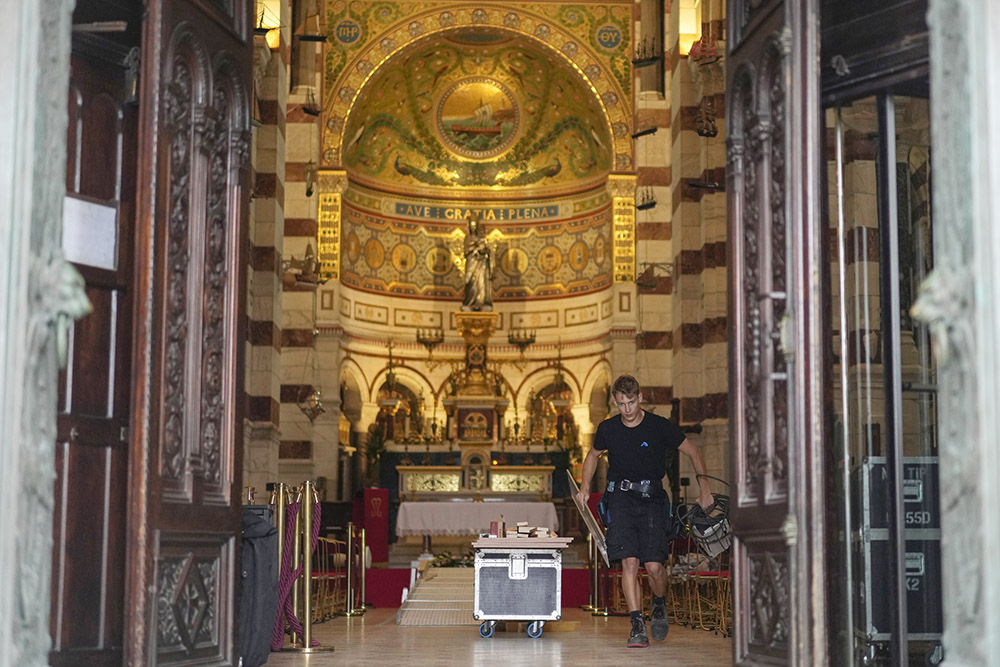
A worker prepares the hall of the Notre Dame de la Garde Basilica in Marseille, France, on Sept. 20 prior to Pope Francis' Sept. 22-23 visit to the city. (AP/Pavel Golovkin)
France has historically been regarded as "the eldest daughter of the church" but in recent decades has experienced tremendous secularization. Rougé said the pope's arrival in Marseille is particularly apt, given that the city has been the "historic gateway to Christianity in our country since the third century."
While there may be tensions inside the country and the church, the bishop said that it's important to recall that more than 45,000 French young people traveled to Portugal last month to be with the pope at World Youth Day — making it the third largest delegation there — and that French dioceses have been actively involved in synodal collaboration and engaged in other forms of pastoral creativity.
"All this makes us open to the words of Pope Francis," he said, "which we hope will encourage us to bear greater witness to 'the joy of the Gospel.' "

